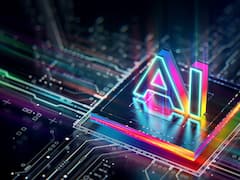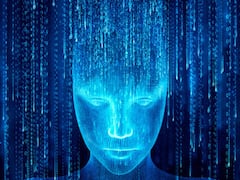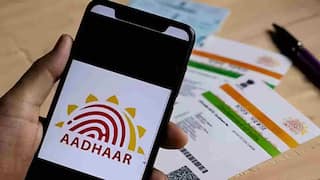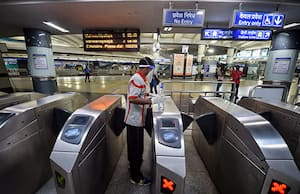How ChatGPT’s Success Is Shaping AI’s Future In India
The potential for ChatGPT is enormous in India and the demand for digital services is skyrocketing.

The adoption of artificial intelligence (AI) is rapidly growing in various industries and has become a buzzword in the tech world. India, being one of the fastest-growing economies in the world, is also rapidly embracing AI and chatbots, which is evident by the increasing number of startups and companies adopting AI-powered chatbots for customer support. One of the most significant developments in the field of AI in India is the emergence of ChatGPT. ChatGPT is an AI-powered chatbot developed by OpenAI, one of the world's leading AI research institutes. ChatGPT uses state-of-the-art deep learning algorithms and natural language processing (NLP) to understand and generate human-like responses to user queries.
The potential for ChatGPT is enormous in India, where the population is over 1.3 billion, and the demand for digital services is skyrocketing. ChatGPT has the potential to revolutionise customer support, e-commerce, education, and many other industries in India.
In the field of customer support, ChatGPT can automate responses to frequently asked questions and free up human agents to handle more complex issues. This can lead to significant cost savings for companies while improving customer satisfaction by providing faster and more accurate responses.
In e-commerce, ChatGPT can enhance the shopping experience by providing personalised recommendations to customers based on their preferences and purchase history. ChatGPT can also assist with order tracking and handling returns and refunds, providing a seamless and hassle-free shopping experience.
ALSO READ: Now, KissanGPT For Indian Farmers Is Helping With Agricultural Queries, Crop Cultivation
However, despite the potential benefits, there are also concerns about the impact of AI on jobs. The adoption of ChatGPT and other AI-powered chatbots may lead to the displacement of human customer support agents and other low-skilled workers. It is essential to ensure that the benefits of AI are shared across society and that the workforce is equipped with the necessary skills to adapt to the changing job market.
The company behind ChatGPT has been in the news lately for its advancements in artificial intelligence (AI). AI has become a more mainstream topic of discussion, with a focus on the potential benefits and risks. There are concerns about the ethical implications of using AI in academia and the potential negative impact on certain jobs and industries. As a result, companies like ChatGPT are taking a more cautious approach to creating and deploying their AI models. Despite these concerns, many experts believe that AI has the potential to greatly benefit society, including increasing abundance, boosting the global economy, and revolutionising scientific discovery. However, there is a need for collaboration between society and developers to ensure that AI is developed in a fair, safe, and responsible manner.
The Government of India has also recognised the potential of AI and is taking steps to promote the development and adoption of AI in the country. In 2020, the Ministry of Electronics and Information Technology (MeitY) launched the National AI Portal, which serves as a platform to showcase India's AI capabilities, promote research and development, and create an AI-ready workforce.
ALSO READ: ChatGPT-Creator OpenAI To Offer Up To $20,000 To Users Reporting Vulnerabilities In Its Systems
The Indian government has been taking steps to encourage the integration of AI technology in various sectors, such as healthcare, agriculture, and education. These efforts aim to improve productivity, enhance efficiency, and solve various problems associated with these industries. One such initiative is the AI for Agriculture Grand Challenge launched by the Ministry of Agriculture and Farmers' Welfare. This program seeks to promote the development of AI-powered solutions to address challenges related to agriculture.
The healthcare sector has also benefited significantly from using AI-powered solutions such as ChatGPT. Chatbots like these can help patients book appointments, provide health-related information, and respond to frequently asked questions. Moreover, AI technology can be used to analyse medical images and assist doctors in making more accurate diagnoses, ultimately leading to better patient outcomes.
AI in healthcare has the potential to revolutionise the industry by improving patient care, reducing errors, and increasing efficiency. In addition, AI-powered solutions can help to reduce the workload of medical professionals, enabling them to focus on providing more personalised care to patients. The adoption of AI in healthcare is still in its early stages in India but is rapidly gaining momentum as more healthcare providers are recognising its benefits. With continued government support and increased investment, AI has the potential to transform the healthcare sector in India and improve the lives of millions of people.
ALSO READ: Ethics Of AI In India: Examining The Implications Of ChatGPT
In the education sector, AI-powered chatbots can provide personalised learning experiences to students, enabling them to learn at their own pace and in a way that suits their learning style. AI can also be used to develop adaptive learning systems that can adjust the difficulty level of tasks based on the student's performance, ensuring that students are challenged but not overwhelmed. And not just that, ChatGPT can assist students with homework, provide explanations for difficult concepts, and even create personalised study plans. This can be particularly helpful in India, where access to quality education is limited in many areas.
The future of AI in India is promising, and ChatGPT is just one example of the potential that AI holds. The adoption of AI is set to transform various industries and create new opportunities for businesses and individuals alike. However, it is crucial to address the challenges that AI adoption may bring, such as the impact on jobs and the need for an AI-ready workforce. With the government's support and the talent pool of engineers and data scientists in India, AI has the potential to be a game-changer for India's economy and society.
(The authors are the co-founders of DigiLantern, a digital marketing company specialising in the healthcare sector)
Disclaimer: The opinions, beliefs, and views expressed by the various authors and forum participants on this website are personal and do not reflect the opinions, beliefs, and views of ABP Network Pvt. Ltd.






































